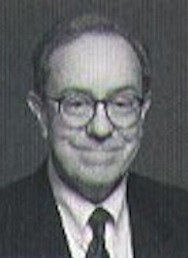
James E. Goodby
Distinguished Service Professor, Engineering and Public Policy
Bio
- Carnegie Mellon, 1989 -
Professor Goodby became a Foreign Service Officer in 1952. He later served with the U.S. Atomic Energy Commission, representing the United States at several international negotiations, and served as Advisor to AEC Commissioner John von Neumann. He served as principal Deputy Assistant Secretary of State for Politico-Military Affairs, Deputy Assistant Secretary of State for European Affairs, Ambassador to Finland, Vice Chairman of the U.S. Delegation to the strategic nuclear arms negotiations with the U.S.S.R., Chief of the U.S. Delegation to the Conference on Disarmament in Europe, and Chief U.S. Negotiator for the Safe and Secure Dismantlement of Nuclear Weapons. He was the Payne Distinguished Lecturer at Stanford in 1996-97 and Distinguished Fellow, U.S. Institute of Peace, 1993-94.
Education
- A.B. (Geology) 1951, Harvard College
- Honorary Doctor of Laws, 1996, Stetson University
Publications
- J.E. Goodby, "The Nuclear Turning Point", in H. Feiveson et al, Brookings Institution Press, Washington, DC, 1999.
- J.E. Goodby, "Confidence-Building Ten Years On: What Has Changed", Korean Journal of Defense Analysis, in press.
- J.E. Goodby, "A Stable Peace in Europe," Brookings Review, Summer 1999.
- J. E. Goodby, Europe Undivided: The New Logic of Peace in U.S.-Russian Relations, U.S. Institute of Peace, 1998.
- J. E. Goodby and H. Binnendijk (eds.), Transforming Nuclear Deterrence, National Defense University Press, 1997.
- J. E. Goodby (ed.), Regional Conflicts: The Challenge to U.S.-Russian Cooperation, Oxford University Press, 1995.
Selected Honors and Awards
- Presidential Distinguished Service Award
- The Department of State's Superior Honor Award
- Distinguished Honor Award
- Commander's Cross of the Order of Merit (Germany)
- Heinz Award in Public Policy for 1994(first winner)